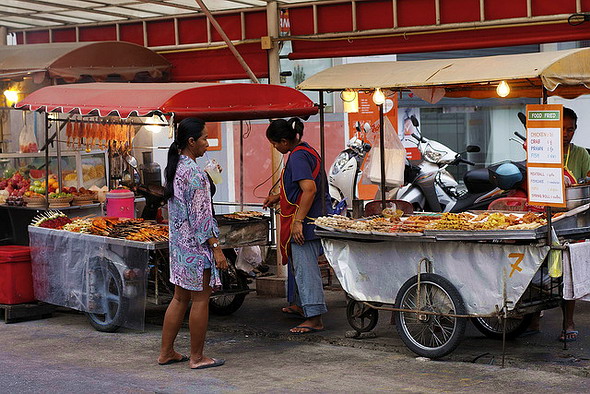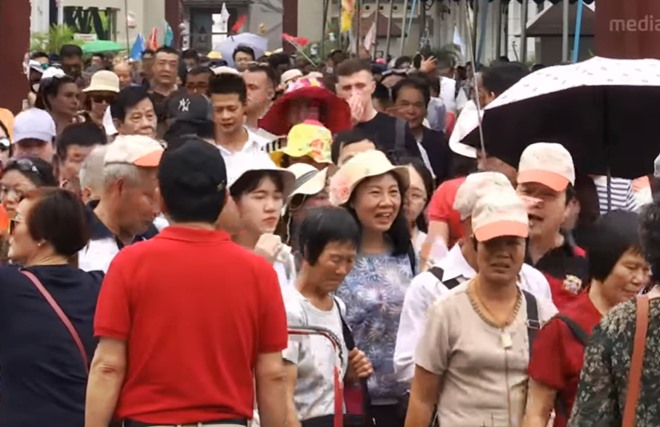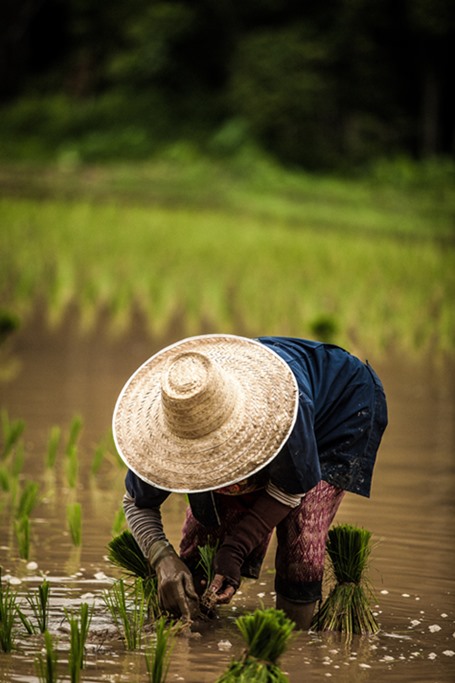
EDITORIAL — September 9th, 2020
Almost every day over the last few months, the Thai news media has continued to report on how much Thailand’s economy is likely to shrink in 2020, with new reports coming out every week from various groups. All with differing numbers depending on their bias.
Today’s projection about the future of the Thai economy in 2020 comes from a group called the Joint Standing Committee on Commerce, Industry and Banking. They currently project Thailand’s economy will shrink by 7-9% in 2020.
Their rationale for coming up with a figure of between a 7-9% shrinkage?
They cite the tourism and export economies being ‘under pressure’ due to the global panic over COVID-19.
In reality, however, the phrase under pressure is massively minimizing the impact of Thailand’s complete shutdown to foreign visitors, as well as minimizing the impact of the country’s largest fall in exports in over a decade.
A fall that is likely to worsen as the global economy continues to contract.
When you consider both of these things, plus the reality that a large number of international investors are now choosing to either withdraw money from Thai investments, or stay away completely, a 7-9% shrinkage of the Thai economy is wishful thinking indeed.
Particularly as the fall in Thai exports in the first half of the year, if continued through the rest of 2020, makes up more than that 7-9% number by itself.

How much is Thailand’s economy likely to shrink in 2020?
Nobody knows the answer to that question.
That means, in most cases, projections like the one from the Joint Standing Committee on Commerce, Industry and Banking are nothing but guesses.
With the Thai government as well as people high up in the Thai business world desperate to prove to Thais and to the rest of the world “things aren’t as bad as they seem”, groups like this have been low-balling the negative impact of the COVID panic on the Thai economy by quite large amounts for months.
When you look closely at the figures it is quite easy to see, however, that as long as global panic over COVID continues, and as long as Thailand refuses to open its borders to international tourists, the strain on the Thai economy will continue to worsen.
So much so, the Bank of Thailand themselves came out last week warning, if borders are not open to foreign visitors by the end of the year, there will be a complete meltdown of the Thai tourism industry in 2021.
A meltdown that could cause the loss of up to 8.4 million jobs — or more than 20% of the total Thai workforce.
This is because the tourism industry in Thailand amounts for between 18-22% of the total Thai GDP. That amount has increased every year since the early 1990s.

While some of that is domestic tourists, the bulk still comes from international visitors with more than 40 million arriving in Thailand in 2019 alone.
This year, due to the government of Prayut Chan-o-cha closing the country’s borders to most international visitors, projections of numbers of foreign tourists arriving in Thailand in 2020 are now fewer than six million.
That figure is only 15% of the usual number of foreign visitors, and most of those have already been and gone — before Thailand’s borders were closed to foreign visitors at the end of March.
Foreign tourists who have been stuck in Thailand since then are also being asked to leave by September 26th. That will mean the little bit of tourist money still being spent in Thailand will leave the country with them.
Domestic spending is also falling at a rapid rate with millions of Thais either unemployed, working shorter hours or worried about losing businesses or jobs due to the falling economy.
With so much uncertainty, the last thing most Thais want to do is spend money — whether on clothing, electronics, household items or even domestic travel. Most are either choosing to save their money until there are signs the economy is improving, or they do not have the money to spend in the first place.

Conservative estimates are more than 3.2 million people in Thailand will lose their jobs by the end of 2020 as Thailand’s economy shrinks, according to one government source. Many of those people will not be eligible for social security, so could struggle to pay basic living expenses like rent and food going forward.
As the situation worsens, more will become homeless. An increased number of homeless is already being seen in some areas of Bangkok, and in cities like Pattaya that almost completely depend on foreign tourists.
Of course, just like many middle-class and upper-class Thais, rather than place the blame where it firmly belongs — the Thai government’s flat out panic about a virus with a mortality rate far lower than was originally thought — Supant Mongkolsuthree, chairman of the Federation of Thai Industries is attempting to place some of the blame on the students currently protesting the military junta government.
“This has gone quite far already. If it goes much further, it will affect the economy… foreign investors have already slowed their investment,” he said.
In reality, however, the plunging Thai economy has little or nothing to do with student protests and everything to do with a government that cannot come up with a plan to invite back foreign tourists before they change it two days later,.
A government that panics at one new COVID case in Bangkok, that has no idea how to jump start the Thai export industry or how to handle a too-strong Thai baht, wastes their time arresting student activists for sedition, and that seems to have about as much skill in successfully running an economy as does a Thai 10-year-old playing an economic-simulation video game.
In some respects, the 10-year-old is probably better at it.
As an article in the Nikkei Asian Review in July so succinctly put it,
“While the Bangkok media obsess over who will now lead the charge, the impact of the COVID-19 pandemic means Prayut’s new economic team will be facing the worst downturn since the 1997 Asian Financial Crisis. Being overseen by a top-down crowd more interested in keeping the peace and quashing dissent than reforming the economy won’t help either.”
